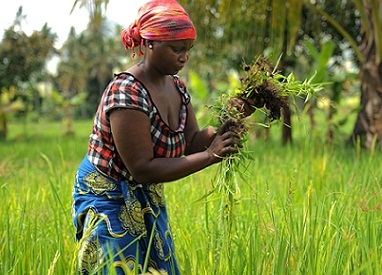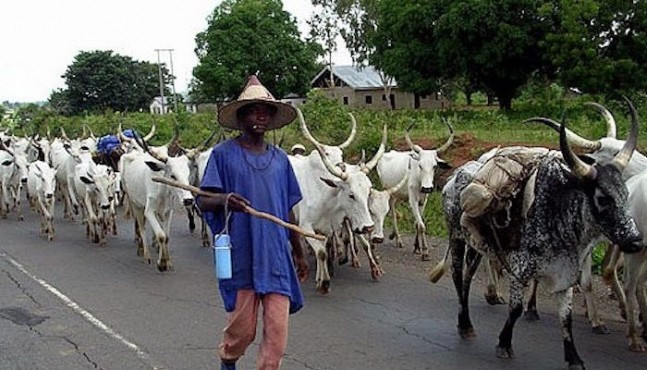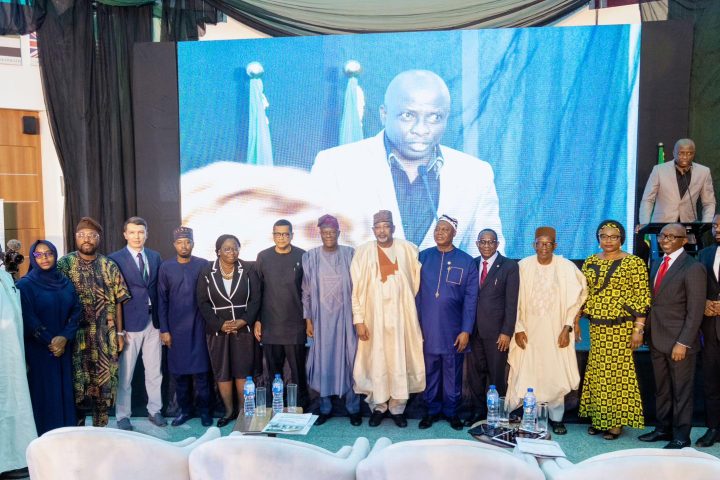THE Chairperson, agriculture and agro-allied group of the Lagos Chamber of Commerce and Industry (LCCI), Mrs Edobong Akpabio, has called for the adoption of Climate Smart Agriculture (CSA) by farmers in Nigeria for sustainable agricultural practices.
Akpabio stated this in an exclusive chat with Prime Business Africa, while highlighting the role of LCCI’s agriculture and agro-allied group in the development of the agricultural sector in the country.
Join our WhatsApp ChannelShe noted that CSA was a suitable approach to tackling the challenges of farming in any environment.
“Climate change, resulting from global warming has taken a toll on the environment, affecting all human activities including agricultural practices,” she said.
Akpabio stated that farmers needed extensive knowledge about modern best farming practices in order to combat food crisis ravaging the world.
According to Food and Agricultural Organisation of the United Nations, Climate-smart agriculture (CSA) is an approach that helps to guide actions needed to transform and reorient agricultural systems to effectively support development and ensure food security in a changing climate.
CSA aims to achieve three main objectives – sustainably increasing agricultural productivity and incomes; adapting and building resilience to climate change; and reducing and/or removing greenhouse gas emissions, where possible.
CSA is an approach for developing agricultural strategies to secure sustainable food security under climate change as it provides the means to help stakeholders from local to national and international levels identify agricultural strategies suitable to their local conditions.
The approach is in line with FAO’s vision for sustainable food and agriculture and supports the organisation’s goal to make agriculture, forestry and fisheries more productive and more sustainable.
Akpabio noted that some of the factors that had affected agriculture and agribusinesses in Nigeria in the last one year included Covid-19 pandemic which restricted movement.
Speaking on insecurity, she stated that at the last statistical check, the number of farmers that had been forced out of their farms as result a result of instability had risen to 40%.
Akpabio who observed that agricultural extension services offered to farmers, stopped over 15 years ago, noted the need to revive the service so as to bring modern farming knowledge to the smallholder farmers especially in rural areas.
She disclosed that the chamber had been working with some agro-service groups to provide training and capacity building on climate-friendly farming system.
She said, “There are training programmes, the chamber expects each and everyone of us to go out there and work with the farmers who are directly affected, like the smallholder farmers. They cannot afford to minimise the effects, they need training on how to plant, which is different now, than they use to be years ago.
“They need that training, that is where the extension services come in. Government has been providing extension services up until 15 years ago, the services began to go out of trend, but we need it back.
“So the chamber expects us to provide advocacy to bring back the extension services closer to the smallholder farmers in the rural areas to teach them climate smart agriculture, but provision of infrastructure is key. Now, the seed council is here to regulate the quality of seeds. There are seeds for all kinds of whether, and there are seeds that are suitable for our own environment.”
Akpabio added that the training given to farmers about climate smart agriculture equally included awareness of best seedlings or crops suitable for a particular environment and weather condition, and best planting methods.
She advised that there was a need to solve the problem of insecurity, criminality and infrastructure deficit in the agricultural sector.
Victor Ezeja is a passionate journalist with six years of experience writing on economy, politics and energy. He holds a Masters degree in Mass Communication.



















Follow Us